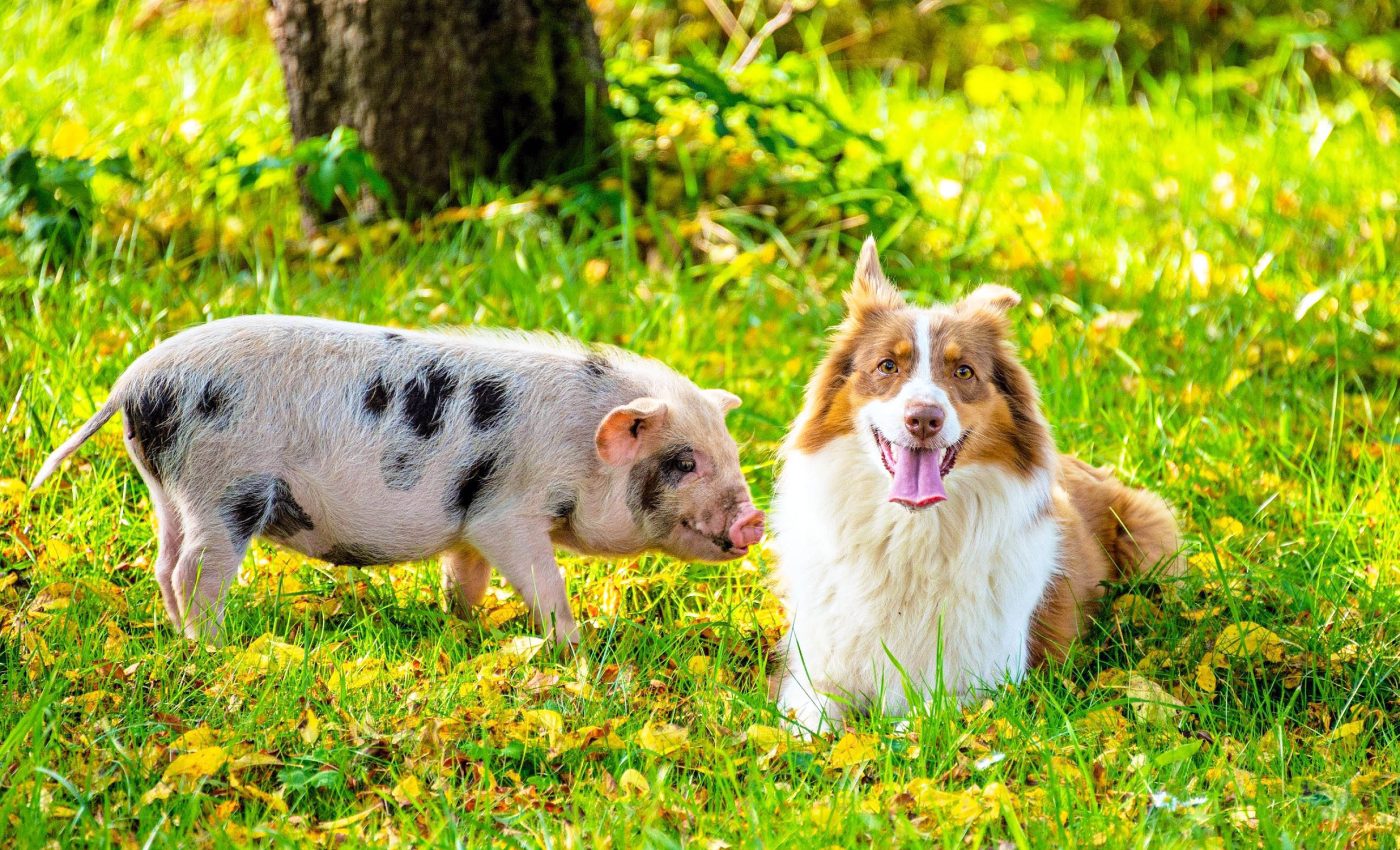
Human emotions evoke different responses in dogs and pigs
Do you ever wonder how your pet understands what you’re going through? An intriguing study conducted in Budapest has given us some answers about how animals like dogs and pigs respond to human sounds.
This research, led by Fanni Lehoczki and Paula Pérez Fraga from the Neuroethology of Communication Lab at ELTE Department of Ethology, reveals how animals react to our emotional vocalizations, offering fascinating insights into the depth of interspecies empathy.
Empathy of dogs and pigs towards humans
Researchers carried out this study on companion dogs and miniature pigs, two popular pets found in homes around the world.
They focused on how these animals would respond to different types of human vocalizations, specifically human humming and crying.
Now, you might wonder, why these two sounds? Well, our tears, more often than not, signify distress and sadness.
On the other hand, humming doesn’t usually signal any particular emotion but is relatively unusual.
According to the research, dogs and pigs were able to distinguish between these two human sounds. However, their reactions were noticeably different.
Dogs reflect human feelings
If you’ve ever felt like your dog can sense your sadness, you just might be right. The study found that dogs mirrored their emotional state to the one they perceived in the human vocalization they heard.
For instance, upon hearing crying, our canine friends demonstrated behaviors indicative of a high-arousal and negative state, reinforcing the idea that pets can pick up on our feelings.
This phenomenon, known as ’emotional contagion’, affirms the deep emotional bond between humans and dogs.
Pigs react to unusual human sounds
On the other side of the coin, our piggy pals reacted more to the unusual sound of humming. Pigs, unlike dogs, exhibited behaviors showing stress in response to the humming sound.
It seems the unfamiliar noise caught the pigs’ attention more, suggesting they might find such uncommon sounds stressful or confusing.
Domestication and emotional contagion
These findings bowled over researchers by suggesting domestication processes might influence animals’ responses to human emotions — with dogs, for instance, being bred for their dependency on humans.
This, in turn, might have led to dogs being more sensitive to our emotional states.
“While we cannot exclude that pigs also experienced emotional contagion when listening to human crying, one explanation for their reaction might be that humming is highly unusual, and surprising sounds stress out pigs more than human sadness,” Paula Pérez Fraga stresses.
The study hints that understanding certain human sounds may be more challenging for some domestic animals. However, additional research involving physiological measurements is required to confirm these findings.
Evolution of emotions
The study delves deeper into the evolutionary pathways that have led to the emotional sensitivity observed in domesticated animals.
Historically, the process of domestication in dogs and pigs has selected for traits beneficial to humans, including the capacity to connect emotionally.
Dogs, being one of the first domesticated animals, have had a long socio-evolutionary history of coexisting with humans.
This prolonged association could have naturally selected for emotional attunement in dogs, enabling them to respond empathetically to human cues.
Thus, their ability to mirror human emotions may be an evolved trait fostering better human-animal relationships.
Pigs, on the other hand, have had a relatively shorter domestication timeline, primarily driven by agricultural purposes rather than companionship.
This difference in domestication trajectories might explain the varied responses to human emotional vocalizations observed in the study.
Implications for interaction between humans, dogs and pigs
The insights gleaned from this research hold substantial implications for how we interact with our pets and other domesticated animals.
Understanding that animals like dogs and pigs can perceive and react to our emotional states invites a more empathetic approach to their care and well-being.
For dog owners, recognizing that their pets might absorb and reflect their emotional turmoil suggests the need to maintain a positive environment to ensure mutual emotional health.
For pig owners, especially those engaging in farming or therapy animal roles, acknowledging their propensity to stress from unusual sounds can enhance animal welfare practices.
Overall, this study underscores the importance of emotional intelligence in fostering healthy human-animal bonds, potentially paving the way for more nuanced and supportive approaches to pet care and domestication.
The study is published in the journal Animal Behaviour.
—–
Like what you read? Subscribe to our newsletter for engaging articles, exclusive content, and the latest updates.
Check us out on EarthSnap, a free app brought to you by Eric Ralls and Earth.com.
—–













